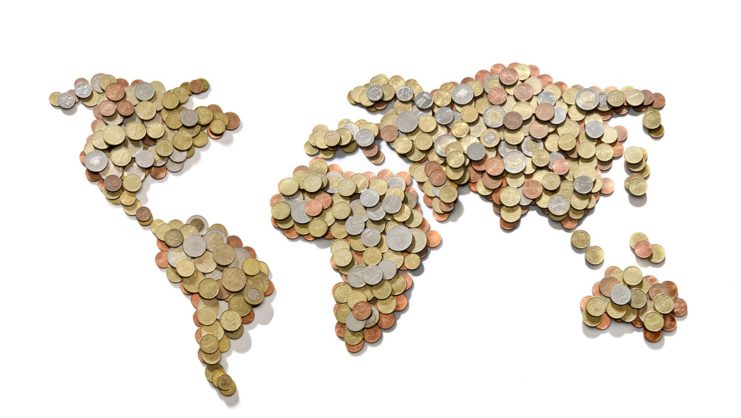Government deficits and debts are higher than ever in the wake of the pandemic. European countries and the United States need massive new investments in the digital, decarbonizing economy and must address the decline of the middle class, while developing countries still require spending for their health systems and economic recovery from Covid. Meanwhile, a crisis of underfunded pensions systems is looming due to demographic change. At a time when the need for government revenues is higher than ever, 136 nations have signed a deal trying to capture some of the billions of dollars flowing each year to tax havens, by imposing a worldwide minimum corporate tax rate starting in 2023.
Many national governments, the European Union, and the OECD have been calling for years for an agreement to counter rising tax evasion worldwide. The Tax Justice Network estimates that countries lose an estimated $427 billion in tax revenues every year, more than half of it from corporations that move their headquarters to tax havens while continuing to operate in local markets. The official U.S. tax board, the IRS, puts the number at $1trn for the United States alone. Gabriel Zucman, an economics professor at UC Berkeley and an expert in tax evasion issues, estimates that more than half of the foreign profits of U.S. multinationals are booked in tax havens, which include the Cayman Islands, Switzerland, Hong Kong, Singapore, Luxembourg and the Netherlands. Estimates of how much income wealthy individuals hide away in tax havens range from Zucman’s estimates of $8.7trn to the astonishing figure of $36trn estimated by economist James S. Henry. These revenue losses are greater in absolute numbers for developed country governments, but they represent a much larger proportion of the government budgets of developing countries. At a time when nearly every country is struggling with the higher debt burdens left by the Covid pandemic, governments are obviously anxious to bring some of these missing revenues home.
The minimum corporate tax deal, signed earlier this month and to be discussed at the upcoming G20 meeting in Rome, marks the biggest step forward in more than a century on corporate taxation. The agreement has two pillars. The first pillar covers the distribution of tax revenues. Many large multinationals currently pay no tax in nations where they operate, despite obtaining large revenues there, because the old tax systems required companies to be physically present in order to be liable for tax. Multinationals with global sales of more than €20bn and profitability of more than 10% will now be required to pay a fair share of their taxes in any country where they are selling their products, even if they do not have a physical presence there. These multinationals will have to reallocate 25% of their profits above the 10% threshold to individual market jurisdictions, based on their sales in each market. The exact details of this “fair share” pillar still need to be worked out, but the likely outcome is that companies like Facebook or Google would no longer be able to concentrate all of their tax liabilities in low-tax countries while paying no tax in other nations where they earn billions of dollars of revenues from sales.
It would stop the “race to the bottom” by countries that have been reducing corporate tax rates for decades in order to attract more business activity.
The second pillar, on the minimum tax, would require that all signatory countries must levy at least a 15% tax on the profits of any companies headquartered in their territory. This would reduce the incentive for the large companies covered by the agreement (multinationals with annual revenues of at least $867m or €750m) to move their operations to tax havens to avoid tax; and would oblige them to pay a larger portion of their profits in tax at home. It would also stop the “race to the bottom” by countries that have been reducing corporate tax rates for decades in order to attract more business activity. (Even the United States can now be classified as a tax haven following the Trump corporate tax cuts.) The OECD, the developed-country think-tank that helped draft the agreement, estimates that the new minimum tax will generate around $150bn in additional tax revenues every year worldwide.
Concessions had to be made to many countries to reach the historic agreement. For instance, the United States wanted a 21% minimum tax, while Ireland refused to sign anything higher than 15%. Small companies had to be exempted in order for some nations to be willing to join. Knowing that the U.S. Congress might block ratification of the agreement, other signatories agreed to postpone, for another two years, their plans for a “digital tax” aimed mainly at U.S. tech giants. China, which was initially reluctant, signed the pact only once a clause was added enabling them to limit the application of the global minimum tax to those Chinese companies that are just beginning to expand internationally. In the end, most countries came on board. The only countries that refused to sign the minimum tax agreement were Sri Lanka, Pakistan, Nigeria, and Kenya.
The global minimum corporate tax agreement marks only a beginning. Initially, there was a hope that the 15% global minimum tax could be raised gradually but, in order to attract signatories, countries committed to not raising the minimum rate further. (Individual countries, however, can still apply any rate at or above the 15% minimum.) In many countries, the 15% rate is lower than their current corporate tax rate. Developing countries fear that the minimum tax would actually become their maximum, since it will be difficult for them to impose a higher rate on companies in their countries than they face in the rich world. This would deprive them of much-needed revenues, since they rely more on corporate than on income tax. Some experts speculate that gigantic companies like Amazon may not even be covered by the agreement, since Amazon declares low profit rates of less than 10%.
Despite all of the drawbacks, experts are hopeful that the agreement marks the start of a more effective battle against global tax evasion, and an important step forward in multilateral cooperation.
© IE Insights.








